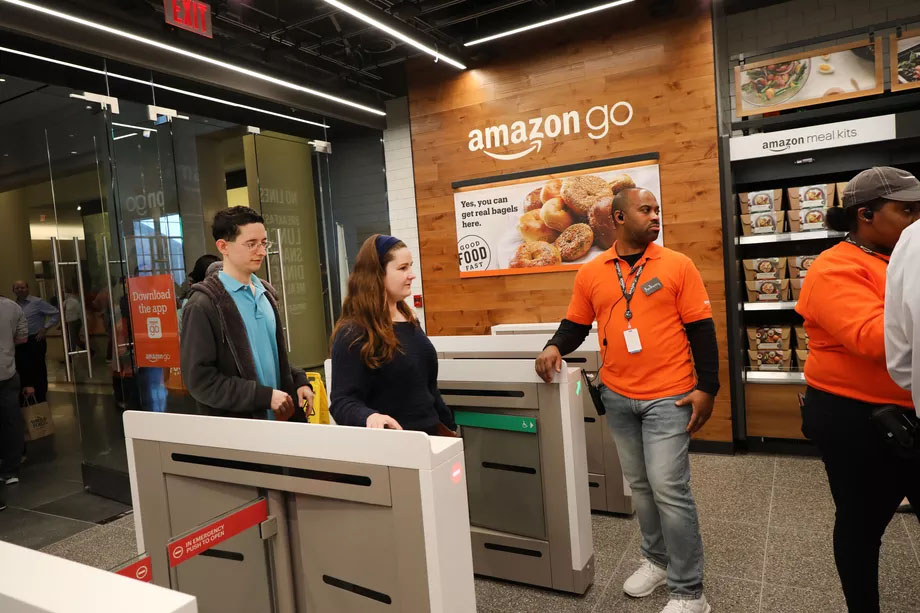Spencer Platt/Getty Images
By Source: www.vox.com, December 2019
Today, visitors to Amazon Go cashierless stores need to scan an app to get in. In the future, Amazon may instead ask to just scan their hands instead.
The US Patent and Trademark Office published a patent application from Amazon on Thursday for a touchless scanning system that would identify people not by their faces but by characteristics associated with the palms of their hands, including wrinkles and veins.
The application filing does not mean the company is definitely developing such technology, but the New York Post reported in September that Amazon was testing technology that would allow Whole Foods customers to scan their hand to pay at checkout rather than swiping a card. If the tech does make it to the real world, it seems the company might be considering using it in its Amazon Go stores: Many of the inventors listed on the application are employees working on Amazon Go, including Dilip Kumar, who has been the head of technology for Amazon Go and is vice president for Amazon’s physical retail initiatives.
The filing is a glimpse at Amazon’s ideas for putting its own tech-forward spin on how people shop in brick-and-mortar stores, now that it dominates many types of online shopping in the US. But a new potential method for identifying people using biometrics will also likely raise questions for a company that is already facing increased scrutiny over privacy concerns related to its products, ranging from its Alexa voice assistant to its Ring home security gadgets.
An Amazon spokesperson declined to comment.
In the patent application published on Thursday, the inventors describe “a scanner device [that] is used to obtain raw images of a user’s palm that is within a field of view of the scanner. … The first set of images depict external characteristics, such as lines and creases in the user’s palm while the second set of images depict internal anatomical structures, such as veins, bones, soft tissue, or other structures beneath the epidermis of the skin.”
The inventors also describe the placement of scanners at entrances or exits of a given location, and associating a scan with a person’s account so that “if the user picks an item from an inventory location and leaves the facility, their account may be billed for that item.”
Amazon has opened 24 Amazon Go locations in the US since debuting the first one on the ground floor of Amazon’s Seattle headquarters nearly two years ago. Visitors to the stores must scan a special Amazon Go app at a turnstile before entering. The stores then rely on a combination of sensors and cameras that allow shoppers to take food or beverages off of shelves and simply exit without stopping to pay. Their linked account is automatically billed after they leave.
An illustration associated with the patent application shows a person scanning their hand at an entrance gate that resembles the one in Amazon Go stores.

